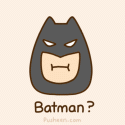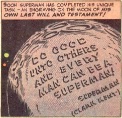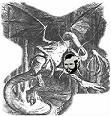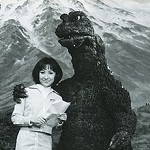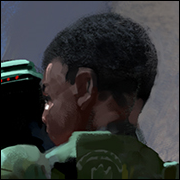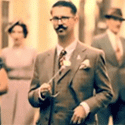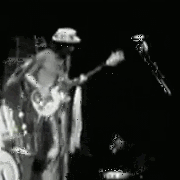|
Theme time! I recently finished reading The Unlikely Disciple by Kevin Roose -- the nonfiction story of an ultra-liberal college student from Brown University who goes undercover for a semester at Liberty University, Jerry Falwell's fundamentalist evangelical mega-college. I went in expecting a "boy, these fundies sure are nuts, huh?" book, but instead it's a strangely compelling look at an alien culture (alien to me, anyway). You find yourself in much the same position as the author: honestly liking his classmates, even if you disagree with pretty much everything they stand for. And things get really interesting when he starts going on dates (Liberty rules forbid kissing and limit hugs to a three-second maximum)... and he meets a girl that he starts genuinely falling for. Ethical quandary, anyone? Kevin Roose had previously been an intern for A.J. Jacobs, the author of The Year of Living Biblically. You may have heard about this one when it came out a few years ago: for one year, Jacobs attempts to take the Bible as literally as possible and follow every single rule and commandment in there. It's a fun read, and shows a surprising level of respect for believers (especially orthodox Jews, who actually follow most of the Old Testament rules all the time), but in the end it's not terribly memorable, and hasn't stuck with me the way that The Unlikely Disciple has.
|
|
|
|

|
| # ? May 13, 2024 12:03 |
|
Wyatt posted:The Girl with the Dragon Tattoo, Stieg Larsson: I really liked this book, but I am surprised it got so popular. Right place, right time (see also: 50 Shades), and Lisbeth was the hook that snagged a lot of people who'd never read anything like it before. There are much better potboilers out there, and I love the series if only for the fact that a ton of great European books came over in its wake.
|
|
|
|
Born Yesterday (1946) Ė Garson Kanin Like Arsenic & Old Lace, this is a play better seen performed than read. The central conceit, which is that a thuggish businessman preparing to go into politics hires a young idealistic journalist to teach the businessmanís shallow, rather stupid mistress how to be a political wife, is pretty good as far as it goes. But without Judy Holliday saying the lines, they lose something of their humor. A light play; not really worth reading outside the context of the 1950 movie version, which is a lot of fun. Nobodyís Fool (1993) Ė Richard Russo Brilliant, witty, ultimately deeply moving and compassionate look at life in small-town New York state. In the central character of Sully Sullivan, Russo sketches a fantastic picture of crotchety old age that never descends into cartoonishness. The plot is incredibly slight; itís essentially about nothing but a few days in the life of this likable, stubborn old geezer who, as many do, has a tempestuous relationship with his grown children and his business associates in the small town where he lives. This novel was turned into an excellent film in 1994, starring Paul Newman in one of his best, yet unjustly overlooked, performances. Great as the film is, the book is even better. Get acquainted with Richard Russo and with Sully Sullivan too; you wonít be sorry you did. The Great Locomotive Chase (1908) Ė William Pittenger This book tells the story of the Andrews Raid, in which a group of Union volunteers, including some civilians, went behind Confederate lines, captured a Confederate train, The General, and headed back for the Union lines, tearing up the countryside as they went. The Andrews Raiders were the very first Congressional Medal of Honor recipients and their story inspired Buster Keatonís The General, so they have two extremely different honors going for them there. This book is made up of William Pittengerís version of events, re-edited from when he had originally written them; Pittenger was one of the Raiders who survived via a prisoner exchange between the Union and Confederacy. Itís a great story, but the telling of it is dry and the book is very dated, being made of up writings from the late 1860s, mostly. I found it pretty hard to read, in fact; Pittenger was a soldier, and, as a writer, he was a good soldier, if you get my drift. There are other, more modern sources to get this story told in a much more entertaining and interesting way. Primal Fear (1993) Ė William Diehl After an altar boy brutally hacks a high Catholic church official to death, Martin Vail takes on his defense and finds himself caught up in a web of blah blah blah. This book is only really notable because it inspired the excellent film of the same name, which introduced most of us to Edward Norton, who gave a fantastic performance as the accused altar boy. The film still holds up, I think, but the book isnít that great. The film actually improves on the story a lot by tightening it up and ditching Diehlís often turgid prose. See the movie; donít bother with the novel. A Midnight Clear (1982) Ė William Wharton I read this one because it inspired one of the most underrated films of the nineties, a masterful ensemble piece about a group of very young American soldiers stuck in a harsh and unforgiving winter locale in Russia at Christmastime and the strange, horrifying experience they have there when they come across . . . well, I canít even tell you more than that without spoiling it. The movie follows the book very closely and the book, like the movie, is a gripping, horrible, pained experience. The pointless stupidity of war is a great theme and Wharton does himself proud with his exploration of it. An unjustly forgotten novel and movie both.
|
|
|
|
Borachon posted:Any opinions on any of Chabon's other books such as The Amazing Adventures of Kavalier and Clay? They're all great. The Mysteries of Pittsburgh is clearly a MFA thesis novel from the late 80s, but even it demonstrates his trademark lyrical prose. Many consider K&C his best, but I have a fond spot for Summerland.
|
|
|
|
Rogue1-and-a-half posted:The Great Locomotive Chase (1908) Ė William Pittenger Got any recommendations for other sources for this story? It sounds appealing.
|
|
|
|
Reposting from the rec thread, like a pro. A while ago I finished Look Homeward Angel by Thomas Wolfe who was apparently up there with Hemingway and Fitzgerald, but I've only just heard of him. I enjoyed it a lot, though when quoting from it to a friend, he described it as "really flowery", and I can't disagree. Curiously, I found such prose great describin everyday things, like breakfast (he's very good at food) or a paper-round. However at traditional moments of drama, like the climax of the book, it was pretentious and deadened the impact. Maybe it was just my attention was flagging. I should read some more of his, but probably something shorter. Then I went on to Angus Wilson's Hemlock and After. What I liked most about Anglo Saxon Attitudes was the characterization. However, this is marred by this book's mission of exposing social evils. Such evils are embodied within helpfully labeled characters, and after giving them time to demonstrate how awful they are, the book sets out to either fix or punish them. Thankfully, within half a chapter, they all unfix or profit from their punishment themselves. That leaves the question why Wilson picked such a simple structure if he didn't believe in it. Next was a copy of Coetzee's Disgrace with the first 15 pages missing. Basically a chauvinist scholar bounces around South Africa feeling angry and helpless at the state of the country. It very efficiently sketches out some quite theoretical problems with language, as well as challenging the main character's surface liberalism. I can see why it won the Booker and would recommend it to anybody, but I can't really like a book where most paragraphs are less then ten words long. Then was Conrad's Victory. More lonely people dicking around in the South Pacific, not talking to each other and distrusting the natives. I'm not sure how to talk about Conrad but I enjoyed this book. I should read more of his. Lastly was Solzhenitsyn's We Never Make Mistakes (as translated by Paul W. Blackstock) which bills itself as "two short novels", which given that they add up to 140 pages, you know they're not kidding around. The first, An Incident at Krechetovka Station is mostly about the waste and paranoia of the Soviet army (and, by extension, state), with a punchline at the end being "we never make mistakes". The second, Matryona's House is about a selfless worker whose life is picked apart by those slightly less selfless. There's a bit of Dostoevsky in the translation of social hypocrisy. THe translation's off though, a mix of italicized words for which a synonym could have been found, and American words which seem ill-fitting to the atmosphere. In amongst these, I finished two Le Carrť novels, Tinker, Tailor, Soldier, Spy and A Murder of Quality. The first of these made so much more sense than Gary Oldman looking sad for two hours. Not as quick and sharp as The Spy Who Came in from the Cold, they share a beautifully constructed plot where the big twist is just a different light on the premise. I feel that the same thing was attempted in A Murder, but it didn't really come off. As a murder-mystery, it demands more concrete clues and red herrings, and as a murder-mystery, I'd guess it's far from the best.
|
|
|
|
ToxicFrog posted:Got any recommendations for other sources for this story? It sounds appealing. I've had Stealing the General: The Great Locomotive Chase and the First Medal of Honor by Russell S. Bonds on my shelf for a while but haven't got round to it yet.
|
|
|
|
Mr. Squishy posted:Reposting from the rec thread, like a pro. I love Thomas Wolfe, but the criticism against him is that everything is huge and meaningful in his writing, from a blade of grass to his father dying, so that eventually nothing is meaningful. That said, his style works really well in short story form. There's a complete collection of his short stories that I bought, like, 12 years ago and it's beat to hell, but I can't bring myself to get rid of it. I just like it too much. So, I'd suggest checking out some of his short stories.
|
|
|
|
dokmo posted:I've had Stealing the General: The Great Locomotive Chase and the First Medal of Honor by Russell S. Bonds on my shelf for a while but haven't got round to it yet. Good choice.
|
|
|
|
Urdnot Fire posted:Would you mind saying which? That's always the best part of a new reader Sure. Game of Thrones book 3 spoilers follow: -When Robb died. It just came out of nowhere. -Joffery choking and then finding out it was poison and the Dwarf admitting to it. -Stannis coming to the wall. He was just brooding on his rock and he gets injected right back. -Dragon Queen backstabbing the Slavers was a surprisr too. I thought it was nuts she was giving away a dragon.
|
|
|
|
Enigma89 posted:Sure.
|
|
|
|
Rascal_Rockhog posted:Finished Misery by Stephen King last week. I really liked it and it's probably the best King book I've read so far. He's not farting around and I feel the story isn't as bloated as The Stand, for example. I also just finished Misery! A fantastic, tightly-written book, made only stronger by its rare lack of a supernatural element. Also worth the read just for Stephen King writing pulp romance novel excerpts. Also, just to get it down in writing somewhere: I'm currently about 75% of the way through The Moving Finger by Agatha Christie - reading one chapter a day along with a friend and swapping theories - and my standing primary suspects are Megan, Joanna or Emily, but I don't think any of them are the original blackmailer - that suspicion I have planted on Mrs. Symmington. I look forward to being proven spectacularly wrong with great enthusiasm.
|
|
|
|
who cares posted:I read this a while back and didn't care for it much. It comes up a lot as one of the best classic sci-fi books but I just wasn't feeling it. I'd like to know what you think of it when you're done. Just finished My Stars My Destination and I enjoyed it overall. I think what is interesting about the novel is that Gulliver Foyle (the protagonist) is a really deplorable person when one considers his actions, but is a compelling character due to his all-consuming revenge against those that did him wrong. I also liked the world building (jaunting) and some of the commentaries on the state of society within the novel. I did kind of feel as though the narrative somewhat unravels towards the last third of the novel, but ultimately the major plot reveals and the conclusion of the story worked for me, all things considered. Based on my Goodreads account, I was thinking of either keeping on the Sci-Fi kick with Roadside Picnic by Arkady and Boris Strugatsky, Childhood's End by Arthur C. Clarke, or potentially Spin by Robert Charles Wilson for something more contemporary. I was also considering Earthsea by Ursula K. Le Guin for a Fantasy novel instead. Does anyone have any recommendations on these books and which ones are worth pursuing? pepper bologna fucked around with this message at 15:41 on Nov 4, 2012 |
|
|
|
pepper bologna posted:Based on my Goodreads account, I was thinking of either keeping on the Sci-Fi kick with Roadside Picnic by Arkady and Boris Strugatsky, Childhood's End by Arthur C. Clarke, or potentially Spin by Robert Charles Wilson for something more contemporary. I was also considering Earthsea by Ursula K. Le Guin for a Fantasy novel instead. Does anyone have any recommendations on these books and which ones are worth pursuing? Roadside Picnic is pretty good. It's a quick read and I think the authors do a very effective job in the way they depict human beings attempting to cope with an environment that is truly alien to human experience.
|
|
|
|
pepper bologna posted:
Childhood's End is a really shatteringly great book. I mean, it transcends sci-fi to just become not just a great sci-fi novel, but a great novel full stop. I mean, it's amazing. A Wizard of Earthsea is pretty good, but for great Le Guin, go for The Left Hand of Darkness. Avoid The Dispossessed at all costs. Tremendously overrated.
|
|
|
|
Myrmidongs posted:Finished Dune Messiah and Children of Dune a while ago. It took me a few reads and a long time to even warm up to Dune, which I appreciate much more now, but these two just get absolutely crushed under their own weight. Messiah is particularly egregious about how badly it manages to completely ignore greater themes which were so prevalent in Dune. Theres lots of sequels that do that, but not only does it ignore what made the predecessor great, it never really attempts to even go off to the beat of its own drum. It just sort of meanders around and never successfully navigates around the wall of bullshit put up by the Ghoala, Bene Gesserit, etc. Children manages to be a much more engaging book, but again, loses itself about halfway in under its own weight. It doesn't even do a half-assed effort to explain why some of the major plot points even are major plot points (Jacurutu
|
|
|
|
Before this I finished I Shall Wear Midnight by Terry Pratchett. I just finished Dodger, also by Terry Pratchett. I will probably read the Game of Thrones books next because a friend turned me onto the television program then complained when I hadn't read the books and gave me them. I wonder how bad they are. Some people might not know, Sir Pratchett is suffering from early onset alzheimer's and has been "wrapping up" a lot of storylines - at least it feels that way in Ankh Morpork and in the Chalk story. This is simultaneously sad and beautiful. The Tiffany Aching series that "I Shall Wear Midnight" is part of was originally intended as young reader's series. It sort of managed this, but I Shall Wear Midnight basically takes the story arc and evolves it into a full part of the Discworld. I couldn't have asked for a better book to sit down with, and it made me nostalgic for the Wyrd Sisters and Lancre story arc eras, I will probably reread those soon. Dodger I'll address second - it's not a discworld book, instead a superb rendering of, as it says on the dust jacket, Dickensian London (now with actual Dickens!), and you can guess from the title who our protagonist is. I can't recommend it enough.
|
|
|
|
Finished The Moving Finger by Agatha Christie. Every single time. Every book of hers I read, I feel even more sure than last time that I've got it figured out. How does she do that? 
|
|
|
|
Luftwaffe Fighter Pilot: Defending the Reich Against the RAF and USAAF by Wolfgang Fischer. A short memoir by a kid who dreamed of being a flying ace and then became one. These books aren't really my thing, but sometimes biographies reveal more about culture than social histories do: the experiences of living through Nazi Germany offhandedly revealed in memoirs by nonpolitical actors really give an insight that you can't get anywhere else. These are the parts of the book I really enjoyed, along with his experience in a POW camp in the USA after being shot down during the Normandy invasion. It seems like he skimps on the actual fighter piloting experience, but I was okay with that.
|
|
|
|
I just finished Hyperion and Fall of Hyperion (audiobook, both) by Dan Simmons. Holy goddamn. I'm a big dumb sci-fi nerd, but for whatever reason, I always walked by Hyperion. Very awesome sci-fi tech, very well-written, and extraordinarily engrossing. I was told to stop here, as the rest of the Hyperion books are not supposed to be that great. Note for the Audiobooks: Hyperion was voiced by multiple actors and very well done (though Brawne Lamia's actor was bordering on annoying). Fall of Hyperion was exceptionally done by a single man.
|
|
|
|
I finished For Whom the Bell Tolls yesterday and I've been a mess ever since. I've never had a novel gently caress me up this bad before. I don't think I've read another author who was/is able to convey absolute loving dread as well as Hemingway did with Pilar's story of Pablo. I was completely blown away. I need a few days to digest this one but I think it's going to go right to the top of my favorites list alongside Catch-22. Also, I'm in love with Pilar.
|
|
|
|
Hedrigall posted:This Book Is Full Of Spiders by David Wong. I've just finished this, too. As a big fan of JDaTE, I honestly thought the sequel was, well... poo poo. You can tell that David Wong has changed hugely between the time he wrote the first novel and this one. There's nothing wrong with that. But the tonal shift between 'two weird guys gently caress up continually and inexplicably save the universe' and 'two weird guys gently caress up and make everything worse again and again' is utterly baffling. The humour is practically absent entirely. JDaTE made me laugh out loud repeatedly throughout the entire book. Spiders... like, I could tell it was trying to be funny but I never actually laughed. That might have been because the characters are different. It's like he tried to ground them. Dave goes from self-depreciating and witty to just incredibly depressed. John goes from an oddball badass character to, well, a drunk idiot. Amy is the only one who seems to be anything like herself but she still seems shallow, vapid and without her previous quirky charm. Even Molly, the dog, doesn't feel like she's the same one from the first novel - does anyone remember the 'dogging you' comment? These characters were endearing in the first book and the more negative aspects felt like they were magnified by Dave's status as an unreliable narrator. In Spiders, I disliked them. Not just because how they've become banal and horrible, but they also have gone from pro-active to reactive. I also thought that the POV going from Dave to the other characters wasn't needed. Part of the appeal of the first book is that you only got David's version of events. It's a sequel and yet barely anything is carried over from the first novel. The big plot point of David (first novel spoilers) not being human is absent entirely as are any of the dangling plot hooks that were not resolved in the first novel. The only thing that really seems to link it is the Shadowmen - who barely show up and don't really do anything. The book is haphazard. He's kept a lot of things from Temple, the original draft that he put on his website, without really altering them. You can tell which bits were written back then and which ones have come through more recently. A lot of it seems to have been kept without any regard to how it fits in or works with the new parts. I thought the ending was cheap. I wanted to like it, really, I did. The problem is, it almost feels like fanfiction. It feels like if someone wanted to create a 'grimdark' fanfic version of JDaTE. John is there, Dave is there, Amy is there, Molly is there, the Shadowpeople are there... but it feels so weird and not-quite-right that it just leaves you wholly dissatisfied. It's like none of the plot elements from the first book are touched upon because the writer doesn't want to risk breaking 'canon' when/if the original author clarifies things. And then you realise that Spiders was written by the original author. Oh... Two out of five, I think, and that might be being generous. Honestly, I can't recommend it.
|
|
|
|
|
The Art of Fielding by Chad Harbach Yet another modern story set in academia (I also just finished The Marriage Plot) but it was just such an incredible read. I actually cared about the outcome of a baseball game. Highly recommend.
|
|
|
|
ProfessorProf posted:Finished The Moving Finger by Agatha Christie. gently caress yes. The Moving Finger is so great. It's like the Platonic ideal of reader manipulation.
|
|
|
|
Rogue1-and-a-half posted:gently caress yes. The Moving Finger is so great. It's like the Platonic ideal of reader manipulation. Seriously, I had a friend backing me up and we both spent the entire book carefully forming complex and clever theories about how all the clues fit together. Despite the pages of analysis, we only managed to successfully interpret one solitary clue (the "I can't go on" suicide note being ripped from an unrelated note), and never even CONSIDERED the real culprit as a suspect. Another mystery attacked, another crushing defeat. Next on the list is The Mysterious Affair at Styles.
|
|
|
|
Outcasts United is literally the worst book I have ever read. It's pretty amazing that the author managed to make a book about something that's legitimately interesting so nauseatingly sanitized and boring. For a book about other cultures, there's like, none. There's no flair or personality in the book at all. Nothing that's not encyclopedic regurgitations of facts. The book is a novel-sized readers digest summary of a bunch of disconnected events, and it paints all of the people in it to be either assholes, idiots, or racist caricatures of people from a different country. I know it's not how it is in real life. In real life it's probably a heartwarming story and the coach is actually a no-nonsense hardass and all of the kids are adorable refugee kids who play soccer without shoes on, and their mothers make kickass estonian food while complaining about the old country. It's really obvious that's what the book was supposed to be about. But it completely missed. poo poo, there's some dramatic events in the book and the author literally goes over it in two sentances. Out of nowhere a child gets shot and after "the bullet entered his xxxxx. he would live another day" it's literally never mentioned again. gently caress this book
|
|
|
|
Red Seas Under Red Skies is a huge disappointment. The second Gentleman Bastards novel has the con artist protagonists forced to act as pirates so their unique skills are wasted for 70% of the book. The massive pirate chapters are not very good unless you love the setting and new characters as much as the author does. You could gut that section and have a brief but decent novel with a setup and conclusion. The small town Texas section of 11/22/63 comes to mind. This book doesn't work and would have been better as a one off about pirates without giving false hope that one of the plot lines would salvage the story in the end. The few intriguing threads are picked up at the end only to be sent off to a future novel.
|
|
|
|
|
I just finished The Human Factor by Ishmael Jones, the pseudonym of a deep cover CIA agent who worked for 20 years overseas to recruit human intelligence. In his book he chronicles his frustrations with the Agency and its incompetent bureaucracy. This book is meant to expose the dysfunctional workings of the CIA's intelligence gathering program, and while it does a decent job of it, the author jumps around with his ideas a lot. He'll go from one thought to the next rather abruptly as if he's having an awkward conversation he doesn't want to finish. However, I can live with that. What bothered me about it was how the author painted himself and a handful of other agents as basically the only competent people in the entire Agency. He often relates how management was so scared of risk that any time he tried to get approval to do anything his requests would get stuck in a circular bureaucratic limbo as it got passed through the layers of management, and any opportunity for human intelligence gathering would be long gone by the time they'd get back to him, often requiring the author to conduct his operations without official approval. Jones frequently talks about his many strategies that he learned to bypass official guidelines in order to do his job. Jones treats his job as a sales position. He starts his career picking up his phone and cold calling potential intelligence targets and then gets annoyed when his superiors tell him that he can't just call whoever the hell he wants without approval or any sort of planning. Jones often attempts to contact sources under the guise of being a potential employer or client for some foreign diplomat/officer/nuclear scientist. His superiors tell him that his sources don't have enough of a reason to trust him, but he responds by saying that this was never a problem for him in his entire career. However, I really think that's a legitimate concern for his superiors. I know I've been cold contacted by potential employers before, and I've been rightly suspicious of them as they pretty much always turn out to be scams, and I'd feel even stronger about this if I were a North Korean nuclear scientist. I'm sure the Agency isn't perfect, but I just really have a hard time believing what he's talking about. I just can't buy that the Agency works this hard to NOT do their job. It seems they'll do anything to not gather intelligence. The Agency also seems to exist to find excuses to bring their foreign agents home and delegate them to a desk job. Jones chronicles his battle to stay one step ahead of the Agency as one slip up and he will be shipped home to a desk job for a long or indefinite amount of time. The book is also a big "gently caress you" to pretty much everyone who works for the CIA in the US. According to him if you work for the CIA and you do not work overseas, then you are basically a worthless paper pusher. This book definitely gives a candid insight into the daily lives of people whose identities are a federal crime to reveal. I'm sure there's some grain of truth behind the author's complaints, but some of the stories he tells about how bad the management is there is just too stupid. Surely Ishmael cannot be the only person in the CIA with work ethic. I just can't buy that being reality.
|
|
|
|
Just flipped the last page of Nineteen Eighty-Four (1949), George Orwell. A rather fantastic read, in my opinion. Orwell touches upon a lot of themes that are more relevant than ever with the increasing surveillance of society. It was a very entertaining read that also was thought provoking in many places. Also, newspeak is fun! Ingsoc plusungood for mans in Airstrip One! Now onto Catch-22!
|
|
|
|
With Remembrance Day/Armistice Day/Veteran's Day coming up, I decided to read my way through my copy M*A*S*H again. It's easy to see how it made the transition to both film and television so easily; the book itself is very episodic in nature. And it's still quite a lot of fun, despite being about a bunch of guys dealing with one of the more gruesome aspects of war that doesn't get explored all that often in literature.
|
|
|
|
I am so pleased, I got Library of America's Philip K Dick Collection for my birthday. I started with "Do Androids Dream of Electric Sheep?" because I'd never gotten around to reading the novel, although of course I had seen Blade Runner. I think Ridley Scott overall did a really good job with the movie--the story was fairly complex, and while I noted where the movie followed a different plot than the book, like that Deckard in the novel didn't have any kind of prolonged fight with the androids , I thought the changes allowed Scott to capture the "feel" of the novel within the limits of the medium. Once I finished that, I started at the beginning in more conventional fashion. "The Man in the High Castle" was good and yet oddly disturbing, perhaps because it was so plausible. I thought that the novel within the novel, "The Grasshopper Lies Heavy" was especially interesting because it was yet another alternate history, although closer to the history that we know. Next was "The Three Stigmata of Palmer Eldritch". I didn't like this one as well as much as I did the other two, perhaps because it's not quite as accessible. I think I'm going to read it again and perhaps check out some discussions and critiques before I make a final call on it. I've only just started Ubik, but overall I'm really delighted with this gift! edit: tag fix Zola fucked around with this message at 16:43 on Nov 11, 2012 |
|
|
|
ProfessorProf posted:
I won't say anything about it, but . . . I look forward to your reaction to it. More people need to read Christie.
|
|
|
|
Zola posted:I am so pleased, I got Library of America's Philip K Dick Collection for my birthday. Can I suggest that you read Time Out of Joint when you're finished with Ubik? It's my absolute favourite Philip K. Dick novel, written in the midst of Cold War paranoia and McCarthyism. I've not heard many people talk about it, but I definitely recommend it. It's one of his shorter novels, too.
|
|
|
|
Zola posted:Next was "The Three Stigmata of Palmer Eldritch". I didn't like this one as well as much as I did the other two, perhaps because it's not quite as accessible. I think I'm going to read it again and perhaps check out some discussions and critiques before I make a final call on it. Even Dick said that was a weird loving book, so don't worry about it. I mean, I like it, but, no, accessible it is not. On that note, unless you're huge into philosophy, I'd suggest holding off on VALIS, Divine Invasion, and Transmigration, which are fairly advance-level PKD.
|
|
|
|
Simon R. Green's Nightside series. All twelve books, no breaks. I read the first few many years ago and wanted to revisit them, now that the series is finished, to see how they hold up. The verdict, sadly, is: not well. There's a lot of cool ideas scattered around, but unfortunately, Green is not actually a good writer. He has a bunch of phrases and scenes he likes to re-use ad nauseam, none of which are as compelling as he thinks they are. The way the characters act and the way they're described by the narration are often at odds. The limits of Taylor's Gift are poorly defined and change from book to book, and books will often contradict the events of their prequels. The Nightside itself is a fascinating place, but Green doesn't really do it justice, and as the series continues it stops being guided tour of the wonders and horrors of the Nightside in favour of focusing more on the poorly realized characters that inhabit it, and thus steadily goes downhill. In the end, I can't really recommend it. At least it was short; the entire series combined is as long as, perhaps, any two Erickson or Hamilton novels.
|
|
|
|
I recently finished The Pale King. It took me a while, but I am a slow reader. There were a lot of parts I really really enjoyed, but others I felt really dragged on a little bit. I think the novella-within-the-novel was my favorite part. It did seem rather unfinished, but who knows. Can't help but wonder what it would have been like had he lived to finish it. I think the editor did a great job though, all things considered. It was just bittersweet reading the brilliant parts and knowing this was the last we'll hear from such a great author.
|
|
|
|
Yea. I sure do hate when my unfinished novels have that "unfinished" feeling.
|
|
|
|
My neighbourhood association had a charity sale back in September. We got lots of donations of books ... but very few buyers. People don't even want to pay a buck a book. Why is how I ended up with several boxes of secondhand books in my dining room. Dipping into it, I first read Ben Aaronovich's The Rivers of London. Briefly, a young police constable is transfered to the Metropolitan Police unit that deals in occult and magical events, including keeping the peace between the squabbling old gods and spirits that cluster around London and the Thames. There's the inevitable villian that dogs our hero throughout the book, before the inevitable climax where only the hero can defeat the wicked plot. Writing style is very much like Douglas Adams in "Dirk Gently" mode, with the hero making many sarcastic aides to the reader, making fun of the ridiculous people and institutions he has to deal with. (Fun fact: the author used to write Dr Who novelizations, just like Douglas Adams.) There's a lot of fun detailing all the various river gods and their relationships (e.g. the grandmotherly Thames who is Jamaican and can be bought off with a shipment of ale and spirits) and some close and detailed geography. (At several points I recognised the parts of London the action was taking place in. Once I thought the author has got it wrong until I realized I had mistaken the location.) Since the denoument inevitably involves MAGIC, it all gets a bit arbitary at the end and you'll probably recognise the villain way, way before the hero does. But it's fast and fun and a bit different. I may have to read the sequels. Second was Steig Larsson's The Girl with the Dragon Tattoo. For the record, I saw the Swedish film and thought it started off as a promising mystery before losing it with a clumsy solution, ludicrous villains and an unpleasant subtext. To my surprise, the book is much better. Yes, it's unabashed pulpy airport lounge fiction. Yes, it desperately needs editing (multi-page backstories on minor characters, descriptions of everyday trivia like prices and what people mare eating, what a character paid for a flat in the 1980s). And lord, the wish fulfilment. But it's surprisingly readable and flies by for a novel of that length. Many thngs that I found ridiculous in the movie are better justified in the book, as well as the sexual violence being largely implied. There's still plenty of bollocks in the solution, but no more than many other mysteries. I still can't see why these books have become such a global sensation - they're competent rather than clever - but I may even read the sequels some day out of interest.
|
|
|
|
This book is full of spiders seriously dude don't touch it isn't the same type of book as the first one. I really don't know what I was expecting while reading it but if I was expecting that great of a sequel of the first one I would be pretty disappointed. But i just kind of went with it and it's a pretty decent read, I guess. For the first 3/4ths of it. In the last quarter of the book it's like the author completely forgot that he needed to end the book and he just rushed through and ended it with a bunch of deus-ex bullshit in the last 20 pages that wasn't quite deus ex bullshit because it was clearly foreshadowed, so while I was reading it and this poo poo comes out of nowhere - it's not really out of nowhere because it was clearly established prior in the book and it's not really out of place or anything. It's just... why. It's even worse that in that last quarter there was a bunch of stuff that he left hanging that really shouldn't have been left hanging. I'm all for coathanger endings but the stuff was just too cool to not talk about and he just whizzes on past it. Whatever. It was an okay read. I don't think I'd recommend it specifically but if you want to read it, do it.
|
|
|
|

|
| # ? May 13, 2024 12:03 |
|
Ethan Frome (Edith Wharton). Way back in the day, this was one of the selected readings for senior AP English students in high school. I had dropped out of AP English so I didn't get to experience this one then. I probably would have hated it. I don't much like it now. Of the three Wharton books I've read (The House of Mirth, The Age of Innocence) this is the weakest. It's a very straightforward plot and not a deep one. Life craps on Ethan Frome. That's pretty much all we know as Wharton explores very little in the way of details. Will spoiler this part if needed. Frome's father is kicked in the head by a horse, his mother goes a bit nuts and eventually dies. His cousin Zenobia had come over to tend to his mother and presto chango, they're now married and Zenobia's the same way. It's briefly insinuated that a relation of Zenobia's thought it was natural they would marry because of her now being ill after caring for his mother, but Wharton does not care to tell us if Ethan was pressured or not. Mattie comes over as the poor relation and Ethan is excited for something different. But the book goes for the simplest and least exciting and least surprising plot developments. Warning: Spoilers for two books included. Pickle dish knocked over. Oh hell, is Zenobia going to find it. Going coasting while taking Mattie to the train station? Gee, really, an accident? And Mattie's paralyzed? It even lacks the fun ambiguity at the end of The Haunting of Hill House where the car wreck could be taken as both an accident or suicide. If Mattie had died, you'd at least get that, wondering if Ethan possibly did it on purpose to ruin himself or her or Zenobia or something. And what happened with the hired girl that they were going to get that they really couldn't afford? Perhaps it's meant to insinuate that the guy going to visit Frome who's interested in this "smash-up" can't glean all the details. But without asking many questions to a bunch of quiet neighbors, he gets this much? Not Wharton's best effort. The House of Mirth is a billion times more intriguing and deeper. EDIT: I never read symbolism stuff until after I finish. The one assigned to this one is suicide attempt by sled. There's ambiguity there, unless it's symbolism that's been attached to it years later: The ending is so simple, there must be something deeper to it.. I don't think Ethan would have tried it, as he's already ruled out something with a similar end earlier. RC and Moon Pie fucked around with this message at 01:24 on Nov 13, 2012 |
|
|

















